Gary Mehigan opens up about MasterChef, Plate of Origin and impact of COVID-19 on hospitality
Passing of the torch to Masterchef’s new judges gave Gary Mehigan the freedom to pursue new opportunities. He opens up about leaving the show and his latest cooking adventure.
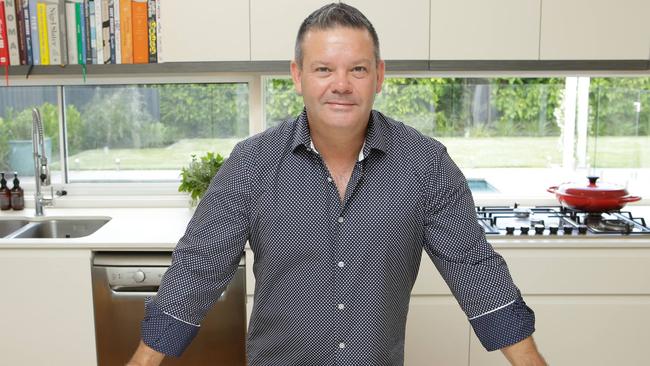
Lifestyle
Don't miss out on the headlines from Lifestyle. Followed categories will be added to My News.
It feels like a foggy memory today, but there was window in late summer where it didn’t look like the world was going to hell in a handbasket.
COVID-19 was yet to lock us in our homes, the bushfires that devastated huge swathes of Australia’s east coast had been finally extinguished, and a campaign for city folk to help those towns recover was in full swing.
The #emptyesky idea was simple: hit the road and visit communities whose livelihoods had been destroyed and support local business by packing the Esky for home with goods from small regional producers and shops.
So three of television’s most famous food faces packed the car with their Eskies to do their bit.
But locals in Mallacoota, Eden and Pambula weren’t greeted with the trio who’d spent more than a decade in our living rooms together, presiding over a cooking competition that turned food into a national obsession and its judges into first-name-only superstars.
This time, it was Manu Feildel who clinked beers with Matt Preston and Gary Mehigan at the Cobargo Hotel instead of their old MasterChef mate George Calombaris.
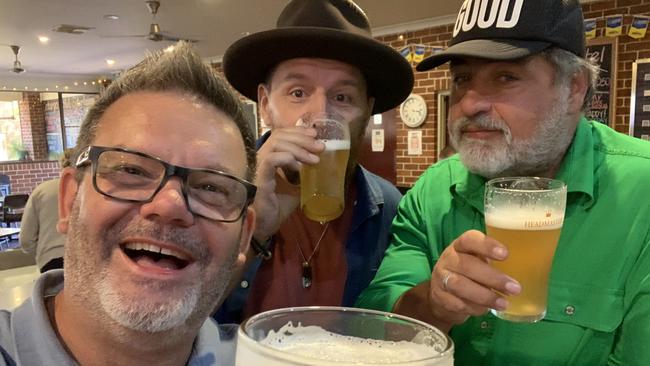
The trio were taking a break before filming their new show, Plate of Origin, travelling up the east coast and stopping to eat Sydney rock oysters in Broadwater and cold-smoked salmon at the Eden Smokehouse, chatting with young chook farmers at Bega Valley Eggs and thanking the volunteers in Bermagui who had cooked and served more than 43,000 meals to support those fighting and affected by the bushfires.
Mehigan says it was an “emotional trip” but one that reminded him of how beautiful Australia is and how much there is to discover here, rather than just abroad.
Travel was to feature heavily in Mehigan’s plans for 2020, after he was unceremoniously freed from the shackles of a six-month, five-day-a-week filming schedule for MasterChef.
On the eve of last season’s finale, Channel 10 announced the trio that launched one of television’s most successful series would not be returning after 11 seasons, reportedly due to a pay dispute.
It’s a charge they deny, but the fact Calombaris was making headlines across the country for underpaying staff almost $8 million rather than for the show that made him a household name likely forced the network’s hand.
Mehigan says moving on from MasterChef was never about money.
“People say, I don’t believe you, it was all about a pay dispute. For me personally, it was about creating opportunities to do more things — more variety,” he says.
“We passed the baton to the three judges they should’ve got in the first place — very handsome, very beautiful, versus, let’s be honest, the three most unlikely looking blokes you could ever pop on prime time television. We were all terribly overweight at the time, two shorties and a giant.”
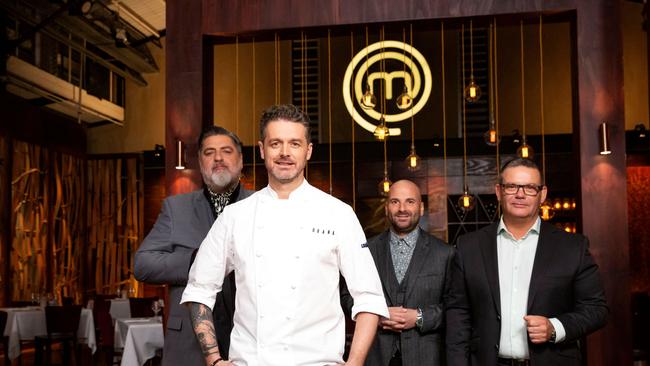
Just as it was a gamble to cast three unknowns in 2009, so, too, was it a brave roll of the dice to change what was a winning formula. But it proved successful: with the combination of new judges, a COVID-captive audience and contestants made up of returning favourites including Poh Ling Yeow, Hayden Quinn and Amina Elshafei, MasterChef recorded its best figures for years, with more than 2 million people tuning in to see Emila Jackson beat Laura Sharrad in the finale.
But Mehigan bristles at the suggestion this season — with new judges Jock Zonfrillo, Melissa Leong and Andy Allen — finally celebrated multicultural Australia on our screens.
“I found it quite funny this year that the diversity card was being played as if it was something new on MasterChef. That’s been its hallmark, and very deliberately so from all involved, execs down to the three of us. That was the joy. Of course, all of those faces we saw this year on MasterChef had been on previous seasons. I don’t think it was anything new.”
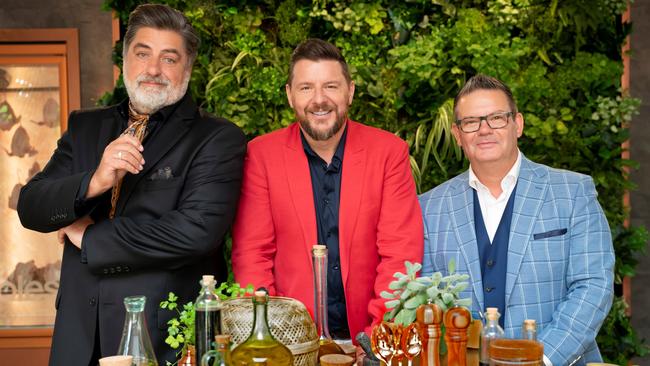
What was new, for Mehigan and Preston, was working with Feildel (who incidentally was almost cast as one of the original judges on MasterChef) on a new network on a completely new show.
“MasterChef will always be intrinsically part of our identity. You can’t do something for that long without feeling a strange sense of something’s missing, or something’s different,” Mehigan says.
“But that’s possibly the very reason why we felt it was time to change.”
Feildel, of course, sat at the top of the table and ratings alongside Pete Evans on My Kitchen Rules, and while Evans has been set free from his contractual obligations at Channel 7 and seems to be spending his time posting anti-vax, anti-mask, COVID-conspiracies on social media, Feildel has relished making a new show with old mates.
“Matt, Gary and myself have been friends for a very long time, even though we were working for different networks on different shows,” Feildel says.
“We had brilliant fun together, bellyaches from laughing daily. We were all happy to be working on a new show and happy to be working together.”
That new show is billed as the “World Cup of Cooking”, where 10 teams representing countries including Venezuela and Vietnam, Cameroon and China compete in head-to-head cook-offs.
“For Matt and I, we’d moved to Channel 7 for a number of reasons. The opportunity to work with Manu and get stuck into a new project was exciting, but also unsettling,” Mehigan says. “(There was) that feeling of, it’s new, and it feels great, but we do miss George, who is of course a great friend.
“We’re very conscious of the fact that when Plate of Origin goes to air, that George will feel strange, too. It’s a thing that binds us all together and we’ll never forget it. I still speak with him every couple of weeks. I’ve known George since he was an apprentice. That’s a long relationship that spans beyond the frame of MasterChef but grounded in hospitality and restaurants and a shared set of values.”
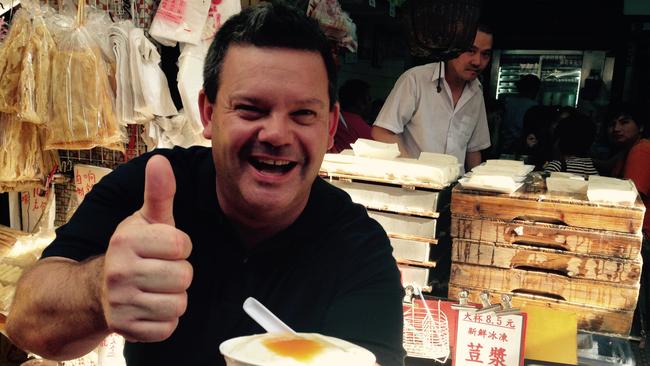
Mehigan, 53, moved to Melbourne in 1991 with his then fiance, now wife Mandy, and it was the food scene here that had the then 24-year-old fresh from travelling the world hooked. Prior to leaving London, Mehigan organised a job working at Burnham Beeches in the Dandenongs — the same property that Shannon Bennett is now in the process of redeveloping into a luxury resort — but after a few months moved into the city and some of the best kitchens of 1990s Melbourne, including Browns in Armadale and Hotel Sofitel in the CBD. It was there he met chef Raymond Capaldi and in 2000 the duo opened Fenix in Richmond, which was then at the vanguard of the molecular cuisine movement (and where a young Calombaris was also in the kitchen). But Mehigan hasn’t had any interests in hospitality businesses after he sold out of the Boathouse in Maribyrnong in 2017.
“There’s a sense of relief in this shocking time for hospitality that I’m not an owner. I certainly feel in the pit of my stomach, especially for close friends and associates. They’re going through very difficult times,” he says.
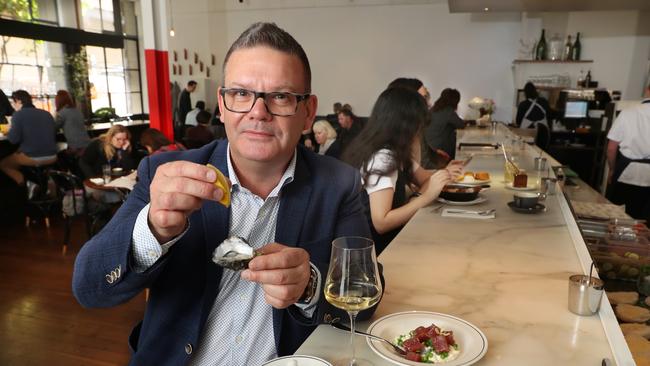
While worried about what the industry will look like on the other side of the pandemic, Mehigan says he has faith that the innate creativity of those drawn to hospitality will help them forge a future out of adversity.
“I think the idea of trying to trailblaze out of this — and of course there will be trailblazers — trying to restaff, re-skill, restock, remarket and reopen and then operate in an entirely different marketplace is terrifying,” he says. “This is the kind of thing that will ignite desire, (in) the young creative minds in our industry and the established, experienced minds in our industry, to use this as an opportunity to shift direction.”
This is not, he notes, the first time the industry has faced an existential crisis — it has weathered the GFC and introduction of GST, 9-11 and the Fringe Benefits Tax. But the perfect storm of high wages and compliance with a complex award system, rising rents, price stagnation and an oversaturated market means the industry will have to reinvent itself to be sustainable.
“Talk to any industry stalwart — Alla Wolf Tasker (of Daylesford’s Lake House), Ronnie di Stasio (of cafe di Stasio) — there’s been lots of times people have thrown their hands in the air and said enough is enough. Whether that was the unbridled explosion of cafes and coffee shops, or difficulty in getting qualified staff, visas … it’s a golden opportunity for all sides of the industry to think-tank to trade out of this in a different direction. I’m talking everybody, hospitality players at every level, to have some kind of input as to how hospitality can reinvent itself,” he says.
“I remember when we were thinking big supermarkets were killing the high street. We’ve all forgotten about that, we’ve moved on. Too many hospitality businesses, too many cafes, are killing the high street.
“I look at my local strip in Malvern, cafes outnumber any other kind of business. Every time a new one opens, even in this difficult time, another coffee shop just opened. There are seven in a 10-minute walk.
“Government whether federal level or local government, has some control and responsibility. To protect our communities and the diversity of businesses in our communities. And certainly how many cafes and restaurants can open up.
“I think the industry, when it puts its collective head together, along with government because it needs to be regulated at some level, can come together and find a stronger way out of this for all concerned.”
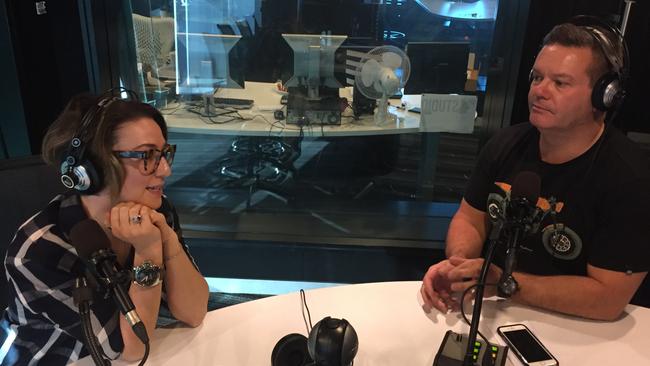
FOR now, like many with more time on their hands, Mehigan has kept busy during lockdown v1 and now v2 in his garden — “I just harvested a load of radishes, planted a yuzu, transplanted a Kaffir lime tree. Have two figs, two varieties of quince, apple and pear trees” — mastering sourdough and writing his next book that’s filled with “classic essential recipes that hopefully will get dirty and sticky and covered in flour and things”, which is due to the publisher in November for release next year. And, of course, tending to his sourdough starter.
He’s also managed to record a heap of new episodes for his podcast, A Plate to Call Home, which he’s been hosting since 2017, where he chats with people “for whom food is everything”.
“For me the appeal, rather than prime time television where you get a three-minute grab on whatever we’re talking about, (is that) you have an opportunity to have a long, in-depth, food-driven discussion with people of like mind. I love that.”
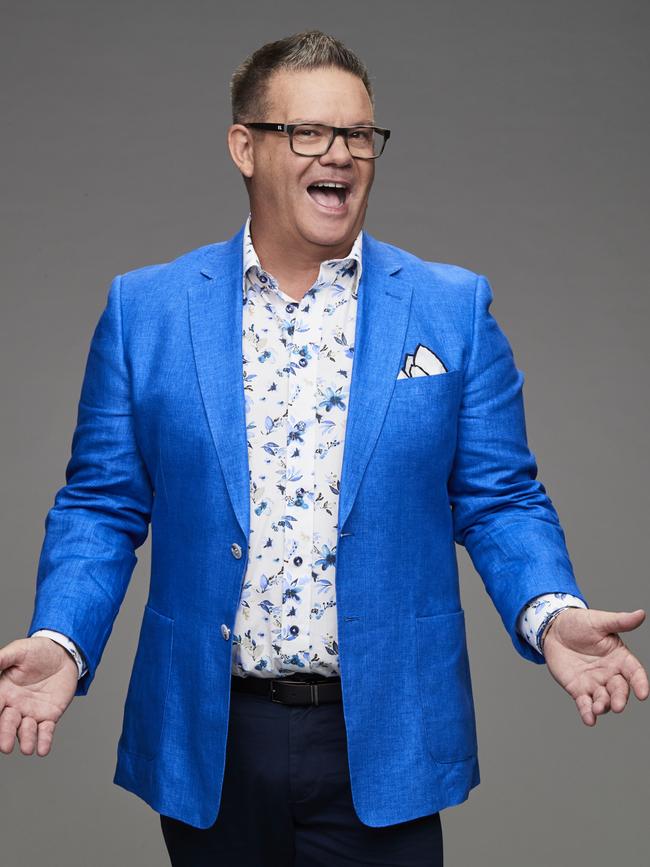
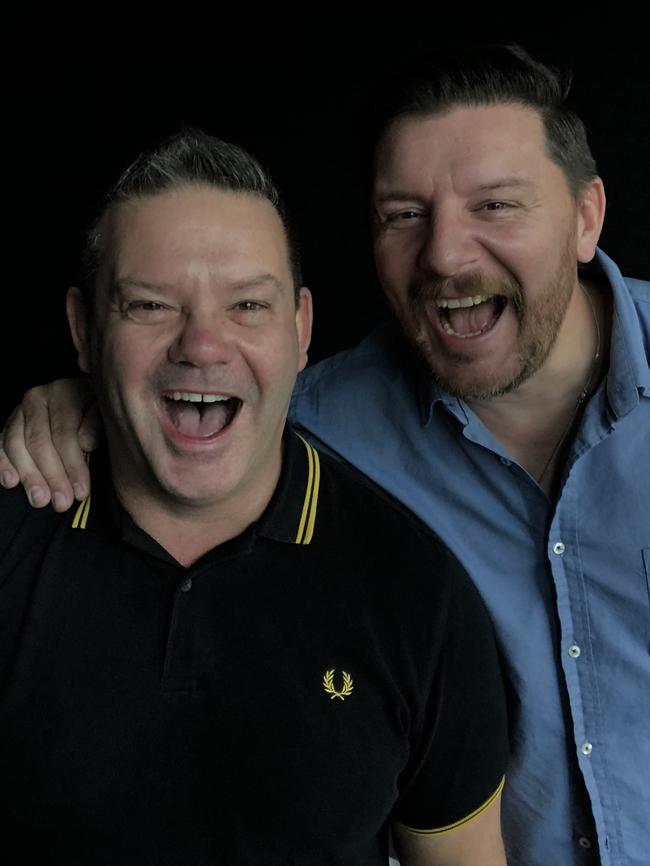
But it’s the closed borders that have had the biggest effect on the peripatetic chef whose booming chuckle often punctuates the end of sentences. With elderly parents and in-laws back in the UK, Mehigan says this time lockdown “feels more suffocating”.
“We had a lot of travel planned this year, both work and pleasure. My father’s not been well for the past year and a half. That’s been difficult. They’re very careful and conscious of the fact they are in a high-risk category, especially my dad — he’s been through chemo and radiotherapy, he just can’t risk it.
“I feel really down, because I know that I can’t go and I know we had a trip back to the UK in August. To spend some time with parents. That feels very final,” he says.
“But they seem quite upbeat, it’s summer, they are avid gardeners so they’re keeping busy. They did explain to me that hey, when you’re retired life hasn’t changed too much.”
As for Mehigan, as long as he can continue to talk about food, cook it, eat it and travel to discover it, retirement is a proverbial four-letter word. “I think about my grandfather, he was a chef, in his retirement he loved cooking. My dad when he retired as an engineer, just stopped. I’m lucky enough to be in food. So in my retirement, I’ll never retire. Always be cooking, always be involved, always be travelling.”
Plate of Origin is coming soon to Seven
MORE NEWS:
WACKY KIDS’ TV SHOWS OF THE 70S AND 80S

